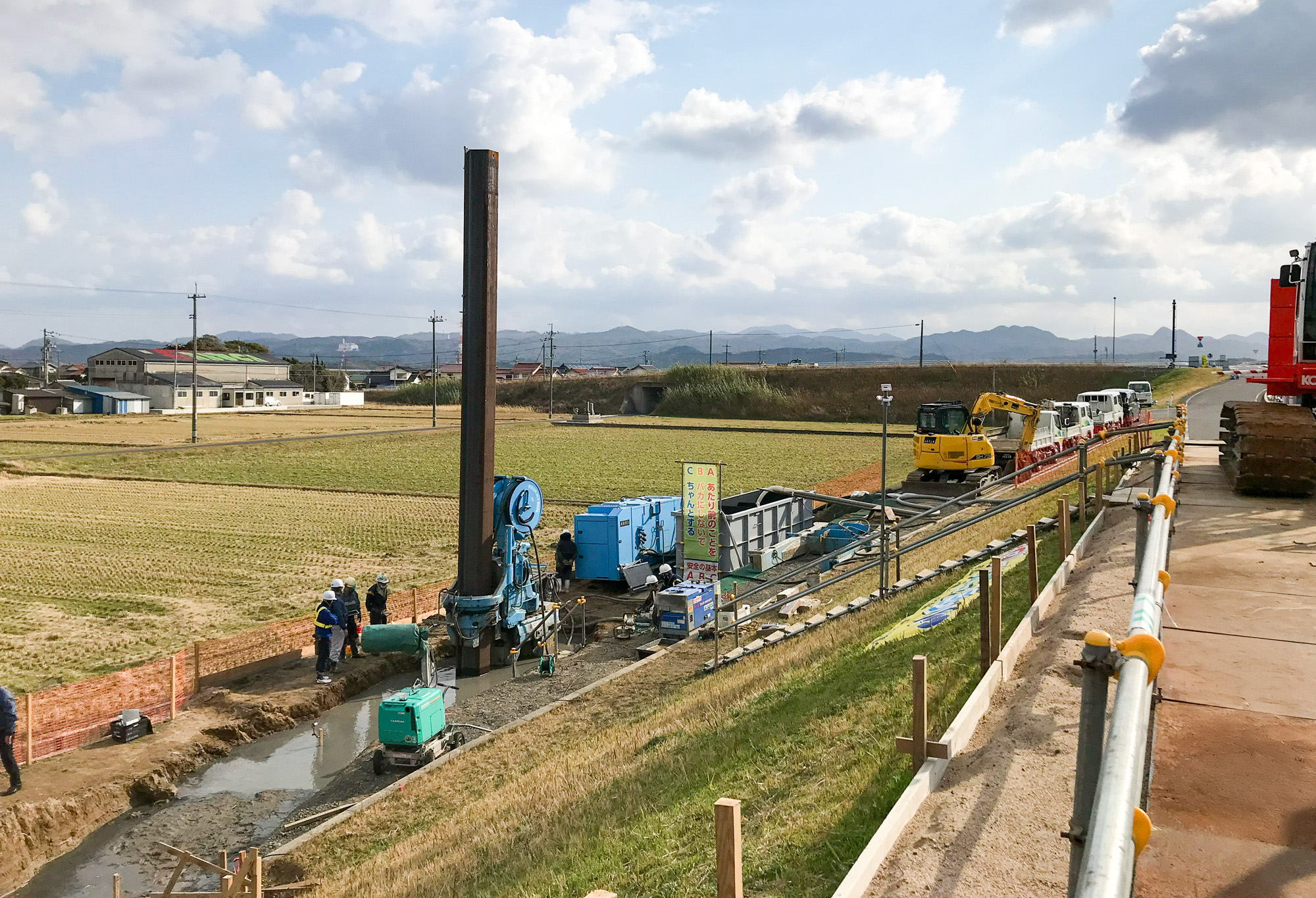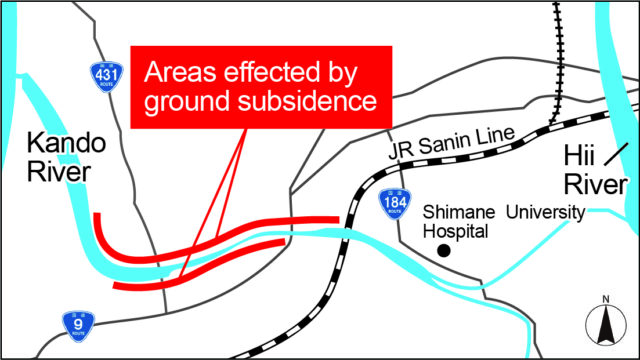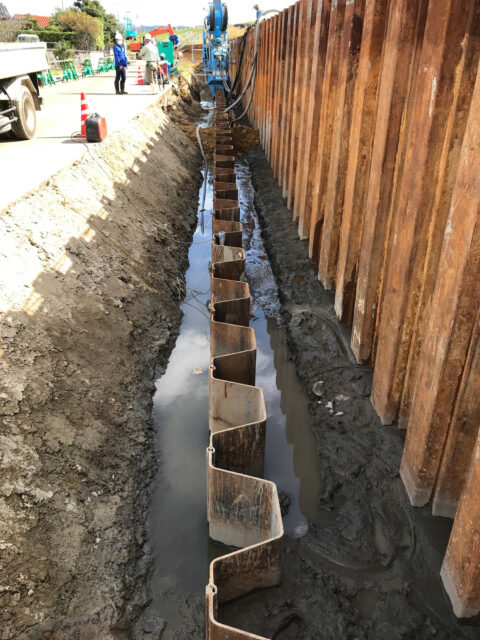The Implant™ Method—which uses the pile press-in and extraction machine SILENT PILER™ that is manufactured and sold by GIKEN LTD.—was adopted for measures against the ground subsidence around the Kando River embankment in Izumo-shi, Shimane Prefecture, Japan. Spanning approximately 7.5 km, the press-in construction has reached its final stage.
Around the Kando River, ground subsidence occurred because the soft ground at the site failed to support the newly constructed embankment. As nearby houses and shed were tilted or cracked, the Japanese government embarked on the construction of fundamental measures in FY2021. The soft ground layer continues deep into the ground in the area, and to prevent dragging subsidence, it was necessary to accurately position long hat sheet piles of up to 45 m in length. Fully applying the superiority of the Implant™ Method, construction of 5.7 km was completed by the previous fiscal year. Construction of the remaining 1.9 km (16 sections) is progressing smoothly in FY2025, the final fiscal year. The Implant NAVI™ system, which allows embedded depth and inclination of the piles to be monitored in real time, is being used in parallel to achieve highly accurate installation of piles, receiving strong evaluation.
The GIKEN Group will continue to propose the Implant™ Method as a technology for preventing ground subsidence and as a measure against liquefaction during earthquakes, and strive to create foundations for safe and secure local communities as a disaster-prevention corporation.

■Chronology from Occurrence of Ground Subsidence to Present
In the Kando River basin, river embankment construction has been carried out since 1993 for the purpose of flood control. During planning, it was thought that the ground could support the weight of the embankment. However, the soft ground at the site was deeper and spanned a wide area, and ground subsidence occurred due to the weight of the soil embankment. This resulted in dragging subsidence that caused the surrounding ground to subside, affecting nearby houses.
Therefore, construction was undertaken to install hat sheet piles in a row to form a “partition” in the ground as a measure to repress further dragging subsidence.



Prepared by GIKEN LTD. based on data supplied from Izumo River Office, Ministry of Land, Infrastructure, Transport and Tourism
■Future Outlook Using the Technologies of GIKEN
In Japan, besides areas around rivers such as the site of this construction, there are many other places at risk of liquefaction and ground subsidence during earthquakes. They include land reclaimed from lakes, marshes, and such, as well as reclaimed land such as that found in the bay areas of Tokyo and Osaka. The GIKEN Group will continue to strive for the realisation of a safe and secure society by proposing optimal solutions according to the situation against such potential risks in disaster prevention.
■Profile of GIKEN Group
GIKEN developed the SILENT PILER™, the world’s first reaction-based, non-vibratory hydraulic pile driving machine that operates with minimal noise impacts. The GIKEN Group now actively promotes its press-in technology worldwide and contributes to the construction industry by proposing and implementing innovative solutions. The innovative press-in technology provides a unique solution and the adoption of this technology has spread to over 40 nations and regions.
If you have any questions regarding the news release, please feel free to use the provided form to inquire.
Contact Us


